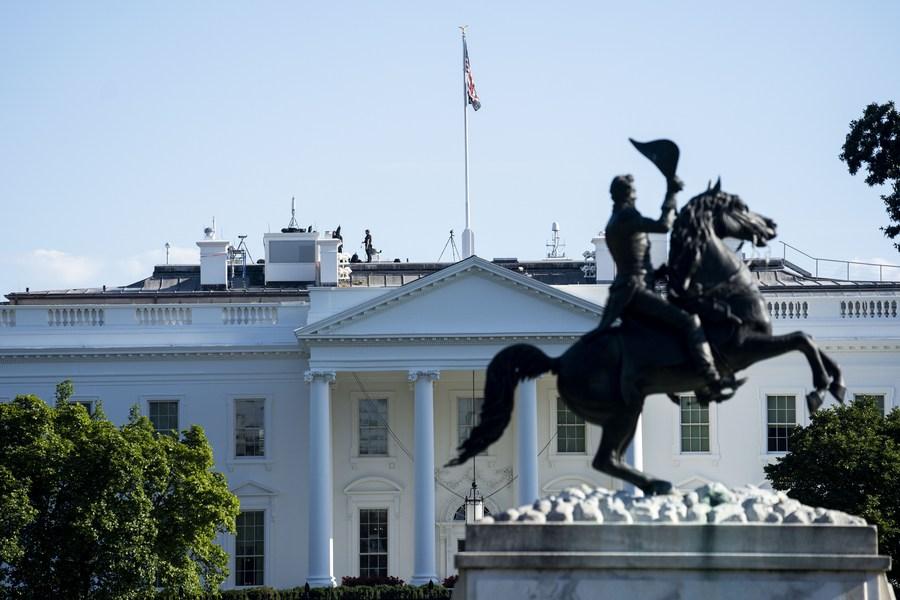
This photo taken on Aug 16, 2022 shows the White House in Washington, DC, the United States. [Photo/Xinhua]
This is an editorial from China Daily.
Getting tough, and then more tough, on China is the new political correctness in the United States. As a consequence, those advocating caution in handling the troubled relationship have become marginalized, and ever more marginalized, in Washington's policy circles.
The China hawks on Capitol Hill are lambasting President Joe Biden for being too soft in the executive order on outbound investment controls he issued on Thursday that seeks mandatory scrutiny of US investments in Chinese businesses in the fields of advanced computer chips, microelectronics, quantum information technologies and artificial intelligence.
Although the order displays an obvious desire to continue sharing the dividends of China's progress, it is still a clear attempt to suppress China's development in these sectors. Yet a bipartisan group of US Congress members claimed they had reached an agreement on giving the government sweeping new powers to block US investment in China. And, despite loud protests from US businesses, efforts are also reportedly underway to expand the coverage of investment controls, as some consider the newly introduced controls too soft and too narrow.
But the Chinese Foreign Ministry was correct in arguing that the restrictions "will only lead them to box themselves in and miss out on development opportunities". No one knows this better than US companies doing business in or with China. As many of them have warned, decoupling, now re-dressed as the less hostile sounding "de-risking", will harm US competitiveness. "If such government controls were implemented on a unilateral basis, it would only hurt the flexibility and resilience of American companies," said the US-China Business Council.
"For US investors trying to navigate the geopolitics the noise in Washington is making it hard to determine what they should be doing in China," Reuters said in an analysis. "The executive order along with anti-China moves by lawmakers and agencies means the overall policy is unclear and riddled with landmines." Such confusion will prove costly especially as the Chinese side is pushing to make the domestic market more attractive to overseas investors.
After Biden issued his executive order, Beijing on Sunday issued 24 guidelines in a document on further optimizing the business environment for foreign investment. The document promises to guarantee foreign companies' participation in government procurement, standards-setting, equal access to government support, and intellectual property protection. Such guarantees will substantially level the playing field for foreign companies operating in China.
Washington's attempt to exclude US businesses from such a lucrative market will certainly undermine their global competitiveness.

 中文
中文



